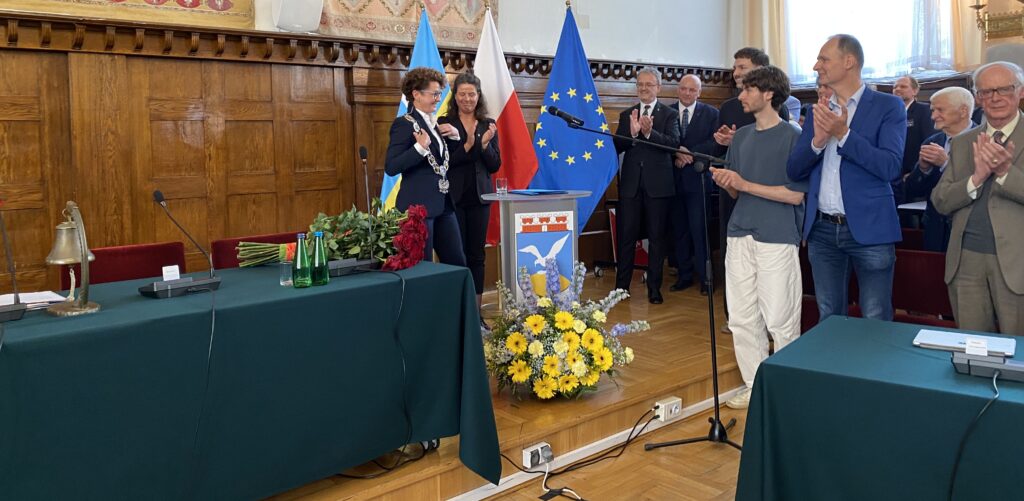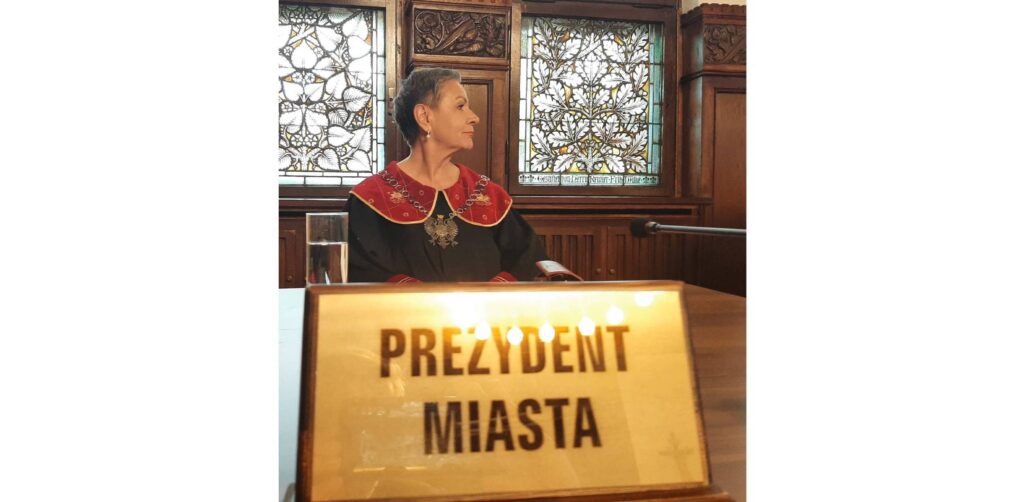There’s a growing outcry in Poland this week against a controversial article in a New York magazine that appeared to link the country to the Holocaust.
The article published in the New Yorker entitled „The Historians Under Attack for Exploring Poland’s Role in the Holocaust” looks at the case of two Polish historians researching stories of Poles who collaborated with the Nazis during the German occupation of Poland in the Second World War.
One line in the article, however, has stirred up controversy in Poland as it appears to tie the nation as a whole to responsibility for the Holocaust. The line reads: „To exonerate the nation of the murders of three million Jews, the Polish government will go as far as to prosecute scholars for defamation.”
The story caused an uproar in Poland with the Deputy Foreign Minister earlier this week describing the article as „scandalous”. Poland’s embassy in Washington is also reported to have written to the magazine to ask for the article’s removal.
Masha Gessen, the article’s author has stood by the piece but the wording of the contentious line was changed on Monday in an apparent attempt to clarify.
The article has also been condemned by the Auschwitz-Birkenau Museum, which described the text as „deeply disturbing” and said damage had been done by Mr Gessen’s piece.
The American Jewish Committee, which itself has previously criticised the Polish government for brushing over cases of Polish collaborators, has also weighed in, denouncing the article and affirming that neither the Polish nation nor the state bears responsibility for the Holocaust.
The issue of Nazi collaborators continues to be a sensitive one in Poland. While there known examples of Poles who did work with the Nazis, the Polish state was one of few occupied nations which never cooperated with the regime.
In the US, the trial has begun of a police officer accused of killing an unarmed black man while on duty last year.
Derek Chauvin – a white Minneapolis police officer – is facing charges of murder and manslaughter for his part in the arrest of George Floyd, a black man, last May. Mr Floyd died during the encounter, something his lawyers will argue was the result of the use of excessive force by Mr Chauvin.
Chauvin denies the charges.
So far, the trial has heard opening statements from both sides, and witnesses for the prosecution have described Floyd’s last minutes and the actions of Chauvin and the other officers involved.
The death of George Floyd triggered huge protests which spanned the entire United States and even spread to other countries over the spring and summer of last year.
Poland’s star footballer Robert Lewandowski is to miss tomorrow’s World Cup qualifier against England.
The world-famous striker was left injured after Sunday’s match against Andorra, with Poland’s football association blaming ligament damage.
Tomorrow’s match against England will be Poland’s third qualifier so far – the Red & Whites drew their first game with Hungary 3-3 but won 3-0 against the tiny nation of Andorra. Top-ranked England is set to be a challenge though, especially missing their star player.
The English-Polish showdown kicks off tomorrow at 8:45 pm at Wembley Stadium in London
In Gdansk, this week marks 76 years since the city returned to Polish hands in the closing days of the Second World War.
Though the exact date is unknown, sometime between March 28th and 30th 1945, Polish troops fighting with the Soviet Red Army took over the city, symbolically flying a Red and White flag from atop the Artus Court on Long Market.
Since the outbreak of war in 1939, the city had been part of the Third Reich and before that had been a semi-independent free city since the end of the First World War in 1918. The German Empire and Prussia ruled the city before that following the partitions of Poland in the 18th century. In total, 153 years had passed since the city was last in Polish hands.
The city lay in ruins after a fierce battle between Red Army and German troops and fighting in the surrounding area would continue for several days, but the return of the Poles to the city marked a key moment in the development of today’s Gdansk.
Weather
A warm and mostly sunny afternoon on the way with scattered clouds set to break up as we go towards this evening.
Highs today of 17C, 51F, with temperatures staying mild overnight.
Another bright and warm day tomorrow with light winds and no rain expected.
Thomas Holdstock/ako




